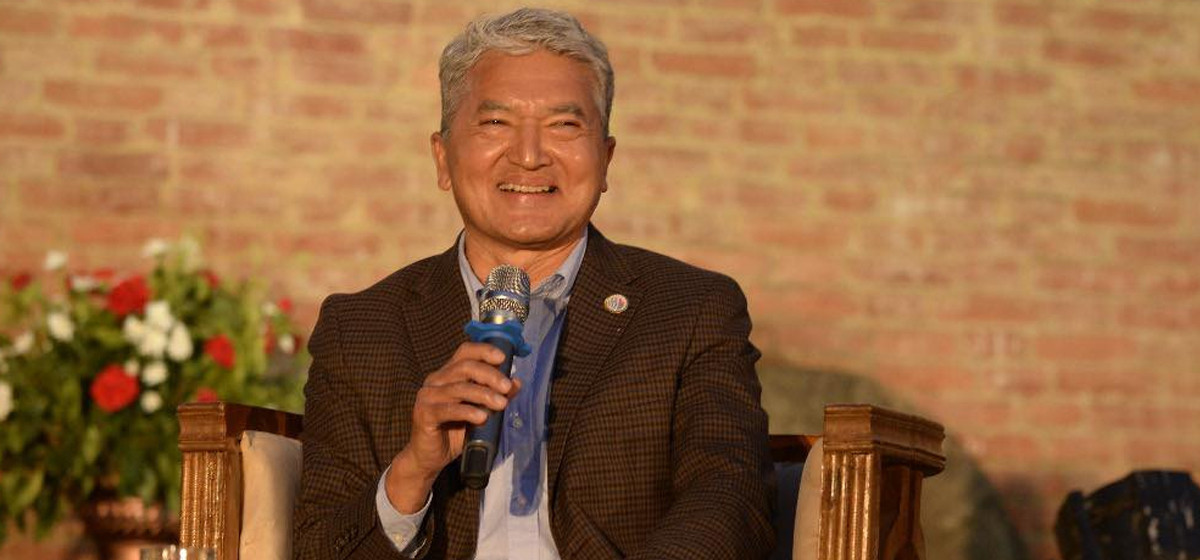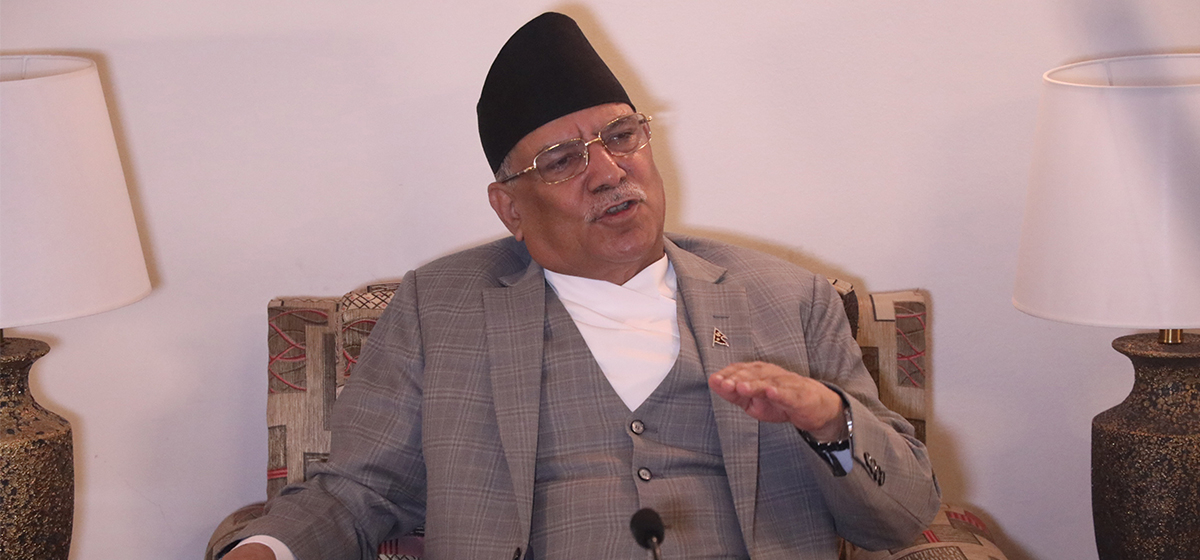
OR

Humans are creatures of habit. Everything we do is dictated by our habits. In the mornings when we make coffee and breakfast we find that sometimes we are half way through the meal before we even realize that we did indeed put butter on our toast. However, when you go over to your friends’ house, you find that this same task of making breakfast makes you think a lot. This is because you are habituated to the things in your house. In this way we have hundreds of habits that rule our lives and not all of them are the best. The Week talked to Karuna Kunwar, psychologist at CMC-Nepal, to walk us through what it takes for you to finally break the bad habits that you have.
Addiction and procrastination
If you indulge on any kind of substance abuse, be it drugs, alcohol or smoking, Kunwar recommends you seek a counselor when you think you want to quit. The reason behind it is quite simple: It is so that you don’t relapse or create a new addiction in place of the last one. For example, some people use nicotine chewing gum in order to stop smoking cigarettes but they end up dependent on the gum. A therapist will help you eradicate the need to rely upon anything.
Addictions usually start when a person feels lonely or has conditioned himself to think that for him to be able to achieve some task, they need something.
“There was a young man once who knew that smoking was bad for his health and wanted to quit. However, working in the creative field, he felt like he needed just a puff or two in order to come up with new ideas,” explains Kunwar. He had conditioned himself to believe that he needed the substance to achieve something.
Then there’s the act of procrastination. You often tend to postpone something you need to do in order to delay the anxiety that comes with completing the task. Most people do this because they think they will be able to finish things at the last minute. However what they fail to realize is that though they might finish the work, this work might not be up to the mark. The one question that people who have the tendency to procrastinate need to be asked is: “What do you understand by tomorrow?”
“People who procrastinate don’t value the importance of the present,” says Kunwar. Consider all the things that will make you procrastinate; not all things will, and try to undertake tasks that you enjoy so that you don’t end up wasting your time.
Figure out why
Whenever you catch yourself thinking about quitting a bit habit, always reflect on it and find out why it is that you are quitting and whether you want to drop the habit because you really want to or if it is because someone has been pushing you to. Make a list to reinforce why you want to quit and write down all the positive reasons for listing it down and memorize them. Usually if you realize that you want to quit for yourself and not for anyone else, you stick to the commitment you have made.
“People know that they have taken a bad habit by themselves and yet they keep finding other people to blame for it,” she says referring to the people that come to her and say that they only picked up the habit because their peers or something pushed them towards it. “In the end it was their own decision and that is what they can’t come to terms with.”
Even if there are people who will come and force your mouth open for a shot of drink, in the end the decision to swallow is yours and yours alone. The moment you realize that it was all your decision all along, you will find it easier to quit a habit.
When you make a decision, trust yourself to keep it and don’t make fall back options or contingency plans for ‘just in case’. Quit your habit just as you started it; without having anything else to depend on. Remember that even the deepest ingrained behaviors including the social and the cultural behaviors can also be changed with time so whatever habit you plan on changing, you can do it as long as you stick to it.
Find a placeholder and start small
Try to replace your habit with something new and positive in your life. The key is to have a plan for an alternate action when tempted to engage in a bad habit. For instance, if you’re trying to stop smoking, chew on some mints, do breathing exercises, or walk around the block when you would usually light up. Filling the void left by your old habit with another activity will help you avoid backsliding. Try to make sure the alternative isn’t boring or unappealing. If you can make your new habit something you enjoy, or something that results in some obvious positive outcome, it will be easier to make the switch.
Some habits, such as procrastinating, can be difficult to change because the solution seems so daunting. ‘Stop procrastinating’ can seem such a big task that you wouldn’t be able to do it. Try splitting up your goals into small, achievable steps. You will get the reward of seeing success sooner, and your brain is less likely to resist your ultimate goal as too big to accomplish. Instead of saying “I’ll stop eating junk food,” say, “I’ll eat a healthy breakfast.” Instead of saying “I’ll go to the gym more often,” say, “I’ll go to yoga on Saturday mornings.” As you find success in those small steps, increase them to meet your ultimate goal.
Also another useful thing would be to use a timer and set yourself a block of time in which you will focus on work without doing anything else. Make this block short, no longer than 45 minutes. It can be as short as 20. The goal is to set yourself a task that’s reasonable and achievable. After you’ve finished that block, take a little break! Do something fun, surf Facebook, check your texts. Then, set yourself another block. This type of technique can “trick” your brain into setting new, good habits because you see immediate success.
You May Like This

Musings of occasional drinker
Drinking is universally accepted as a normal practice across cultures and societies notwithstanding its perilous implications on health. The world... Read More...

Breaking the Bracket: Program for young and emerging Nepali writers
KATHMANDU, March 26: Breaking the Bracket, a writing program, has invited young and emerging writers from Nepal to be a part... Read More...

Breaking the barriers
The biggest problem in our hydro sector is that we failed to learn from our mistakes ... Read More...




Just In
- Nepalgunj ICP handed over to Nepal, to come into operation from May 8
- Nepal to gift two elephants to Qatar during Emir's state visit
- NUP Chair Shrestha: Resham Chaudhary, convicted in Tikapur murder case, ineligible for party membership
- Dr Ram Kantha Makaju Shrestha: A visionary leader transforming healthcare in Nepal
- Let us present practical projects, not 'wish list': PM Dahal
- President Paudel requests Emir of Qatar to help secure release of Bipin Joshi held hostage by Hamas
- Emir of Qatar and President Paudel hold discussions at Sheetal Niwas
- Devi Khadka: The champion of sexual violence victims



_20240423174443.jpg)











Leave A Comment